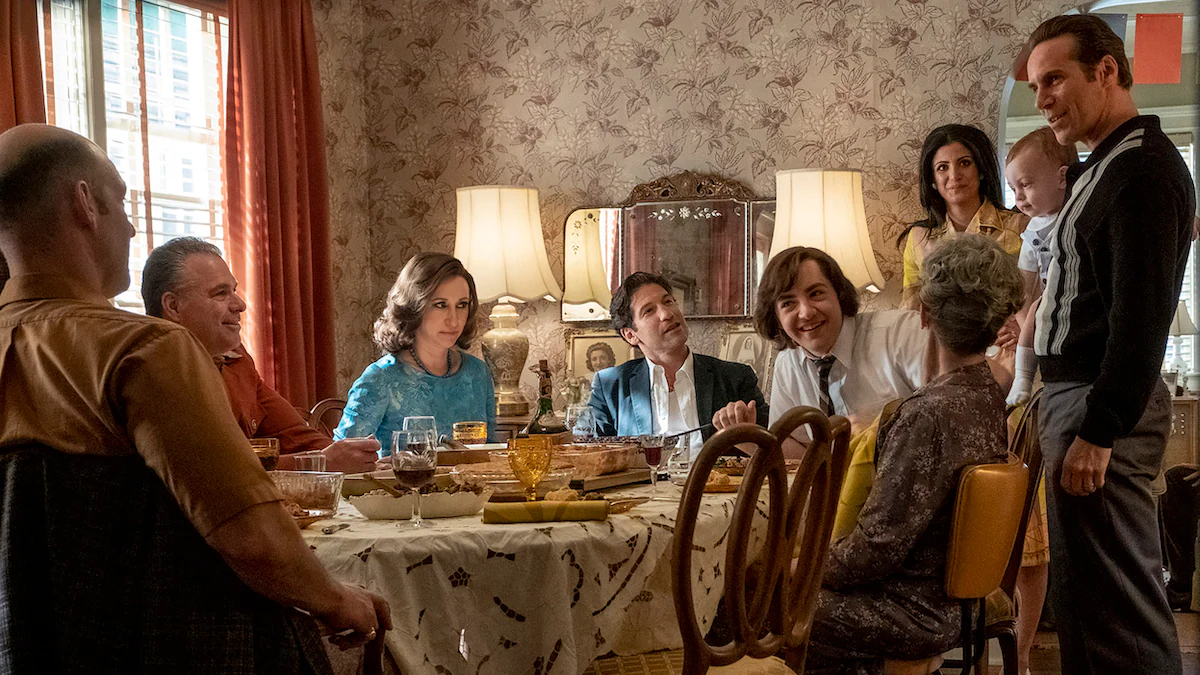If you search the Academy Awards acceptance speech database, you’ll find that, over the past four decades or so, winners have thanked Jesus three times and Harvey Weinstein 20. Which sort of makes sense; if you want to win an Oscar, the deity you really want on your team is indie mogul Weinstein, the master Oscar campaigner who engineered all those individual victories, as well as the sweeps that carried “The English Patient,” “Shakespeare in Love,” “Chicago,” “The King’s Speech,” and “The Artist” to the Best Picture prize.
This year, Weinstein is putting most of his muscle behind “Silver Linings Playbook,” a campaign that has already yielded dividends, in the form of nominations for Best Picture, Director, Adapted Screenplay, and all four acting categories. Realistically, it has a good shot at only one of those trophies (Best Actress, for Jennifer Lawrence), but still, it’s likely that at least one person is going to be thanking Weinstein again from the podium.
Unfortunately, aggressive campaigning sometimes means that elbows get thrown, noses get out of joint, and feelings get hurt. None of that is necessarily Weinstein’s fault, but when the stakes are raised, as they have been this year (with no clear favorite in many categories), ugly behavior starts to emerge.
For instance, those rumors of a feud between Lawrence and “Zero Dark Thirty” rival Jessica Chastain. Both have been at the forefront of the Best Actress category for months. Chastain had supposedly bristled at Lawrence’s recent string of awards victories at her expense. The rumors became so bitter that Chastain had to take to Facebook to issue a statement denying any rivalry or ill will toward Lawrence.
Then again, on Sunday, at the BAFTAs, the British Academy Awards, the prize went to Emmanuelle Riva of “Amour.” The BAFTAs are seldom seen as a predictor of the Oscars — after all, there’s little overlap between the UK-based BAFTA voters and the Hollywood-based Oscar voters — but the BAFTAs have successfully predicted recent upsets in this category: Marion Cotillard for “La Vie en Rose” and Meryl Streep for “The Iron Lady.” It’s certainly possible that a senitmental Academy, full of AARP-aged members, might vote for the 85-year-old Riva over two young actresses who’ll surely get another chance to win. Oh, and of course, “Argo” topped the winners list again, proving that even the Brits have been Affleck-ted by “Argo” fever.
Still, the intensity of the Oscar campaigning, and campaigning-by-proxy, suggests that the Best Picture category could still be in play. That became apparent this week when even Washington insiders got involved.
Actually, they first got involved two months ago, before the nominations were announced, when they responded to the argument forwarded by “ZDT” director Kathryn Bigelow and screenwriter Mark Boal over the movie’s controversial refusal to spell out whether or not torture provided useful intelligence that led to the raid that killed Osama bin Laden.
“Lincoln” helped further this entanglement of D.C. players into the Oscar race by having former president Bill Clinton introduce the movie at last month’s Golden Globes, in a surprise speech that most of Hollywood saw as Steven Spielberg calling in a favor. Last week, however, came some backlash from Washington, in the form of an open letter from Rep. Joe Courtney of Connecticut, complaining that “Lincoln” slandered his state by depicting two of its 1865 congressmen as voting pro-slavery, when they actually voted in favor of ratifying the 13th Amendment. That letter, in turn, prompted a reply from nominated “Lincoln” screenwriter Tony Kushner, who insisted that Nutmeg State residents were indeed divided over outlawing slavery and that changing the votes of some of their delegation to reflect that divide was permissible poetic license.
Meanwhile, “Silver Linings Playbook” got involved through its own visit to D.C., where Russell and Cooper met with Vice President Joe Biden and members of the Senate to press for more federal funding to fight mental illness and emotional disorders. For Russell, it’s a personal issue, since he has a son with an emotional disorder not unlike that suffered by Cooper’s character in “SLP.” Still, that didn’t stop some Hollywood gossips from complaining that the visit was little more than a photo op, perhaps even one orchestrated by Weinstein, to make “SLP” appear more topical and serious. More broadly, Weinstein has been accused of being misleading in depicting the film as a drama about mental illness (the movie may start out that way, but it evolves into a comedy about sports betting and dance contests), as if to play to the Academy’s bias for weighty dramas over light romantic comedies.
Again, it’s hard to say where these whispering campaigns begin, whether rival studios are actually involved, and even whether they’re effective. Questions of accuracy have dogged all of this year’s history-minded nominees (even “Argo”), and it’s not clear that slamming “Lincoln” (or “Argo,” or “ZDT,” or “Django”) over inaccuracy will so discourage voters that they’ll change their allegiance to a pure fiction film like “SLP” (or “Life of Pi,” “Amour,” or “Beasts of the Southern Wild”).
Still, it’s understandable that partisans would act with increasing desperation as the race comes down to the wire. After all, the ceremony is next Sunday, Feb. 24, and the voting period ends this Tuesday, Feb. 19. After that, there’s nothing more a movie’s distributor can do, positive or negative, to influence the race.



 Movies News6 years ago
Movies News6 years ago


 Movies News4 years ago
Movies News4 years ago


 Movies News4 years ago
Movies News4 years ago


 Movies News4 years ago
Movies News4 years ago




